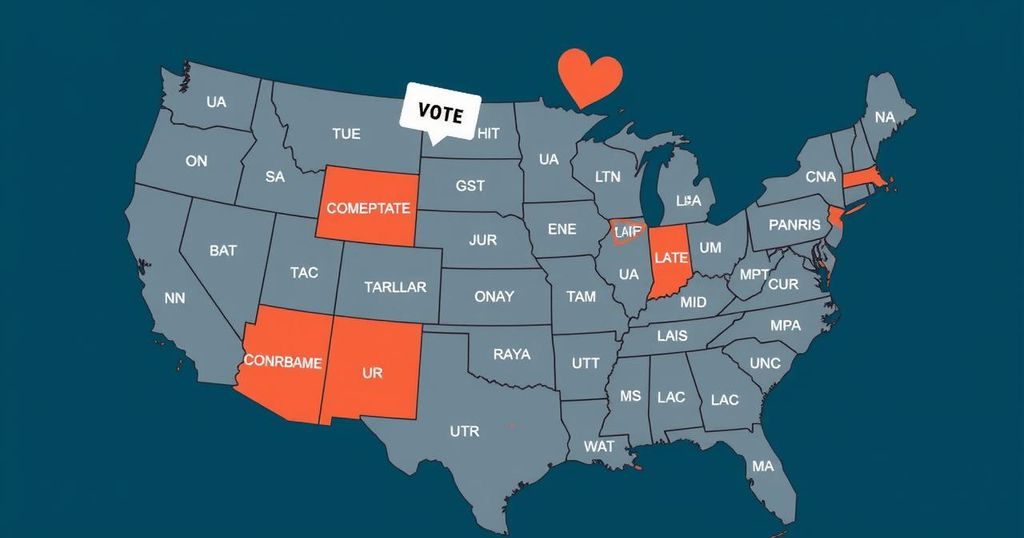Voters in the U.S. rejected numerous election reform initiatives, including ranked choice voting and open primaries, despite over $100 million in advocacy funding. This defeat reflects a preference for traditional voting methods across several states, as many reform proposals failed to gain voter backing. Key figures from both sides highlighted these dynamics, suggesting that future reform efforts need to focus on community support and education to be successful.
Voters across the United States overwhelmingly rejected a range of proposed election reforms aimed at altering voting processes, including ranked choice voting and open primaries, despite substantial financial backing exceeding $100 million from reform advocates. In several states, including Arizona, Colorado, and Nevada, initiatives intended to democratize voting faced significant opposition. John Opdycke, president of Open Primaries, reflected on the defeat, stating, “It turns out, in retrospect, we weren’t yet ready for prime time.” While previous successes in Alaska and Nevada had generated optimism for reform, recent trends suggest that many Americans prefer traditional voting methods, as highlighted by opponents like Trent England of Save Our States, who noted, “While Americans are frustrated with politics, I think most Americans are just fine with the traditional way of voting.”
The context surrounding this legislative landscape includes recent state-level efforts to expand electoral options. Advocates had hoped that initiatives would gain traction after Alaska’s adoption of ranked choice voting in 2020. However, the latest electoral outcomes signal a reluctance among voters to embrace these changes. Although some municipalities have successfully implemented such reforms, including in Washington, D.C., and parts of Minnesota, the broader shift towards alternative voting mechanisms appears stymied for now.
In particular, the resistance can be attributed to a general perception that ranked choice voting is convoluted and potentially disenfranchising, particularly among diverse voter demographics. As noted by Larry Jacobs, a political professor, “Fewer Black voters tend to rank candidates than white voters,” suggesting that the system may not equitably serve all populations. This electoral cycle reveals significant lessons for reform advocates, particularly regarding the need for grassroots efforts and community engagement to build support before initiating formal campaigns.
The article addresses the recent setbacks faced by election reform advocates in the United States, particularly regarding initiatives aimed at altering traditional voting structures. Following significant investments, proposals for ranked choice voting and open primaries encountered widespread rejection during elections across various states. The article highlights perspectives from both proponents and opponents of these reforms, shedding light on the complexities of voter attitudes and the challenges reformers face in building support for alternative electoral systems. The context encompasses previous successes and failures connected to voting reform initiatives, illustrating a landscape shaped by both grassroots movements and substantial funding. The discussion includes insights from political activists and scholars regarding voter behavior, and the implications of adopting new voting methodologies, thereby emphasizing the dynamic and often contentious nature of election reform within the United States. It also reflects on the general sentiment of voters regarding the perceived clarity and fairness of traditional versus alternative voting methods.
The recent electoral initiatives aimed at reforming voting processes in the United States revealed a stark preference among voters for traditional methods over proposed changes like ranked choice voting and open primaries. Despite substantial funding and prior successes, the results indicate a lack of readiness for broader electoral reform. Future strategies will likely require a more robust groundwork of community engagement and education to sway public perception and build support for potential changes. The current landscape serves as a reminder of the complexities entwined in shaping effective electoral practices that resonate with diverse voter populations.
Original Source: gazette.com






